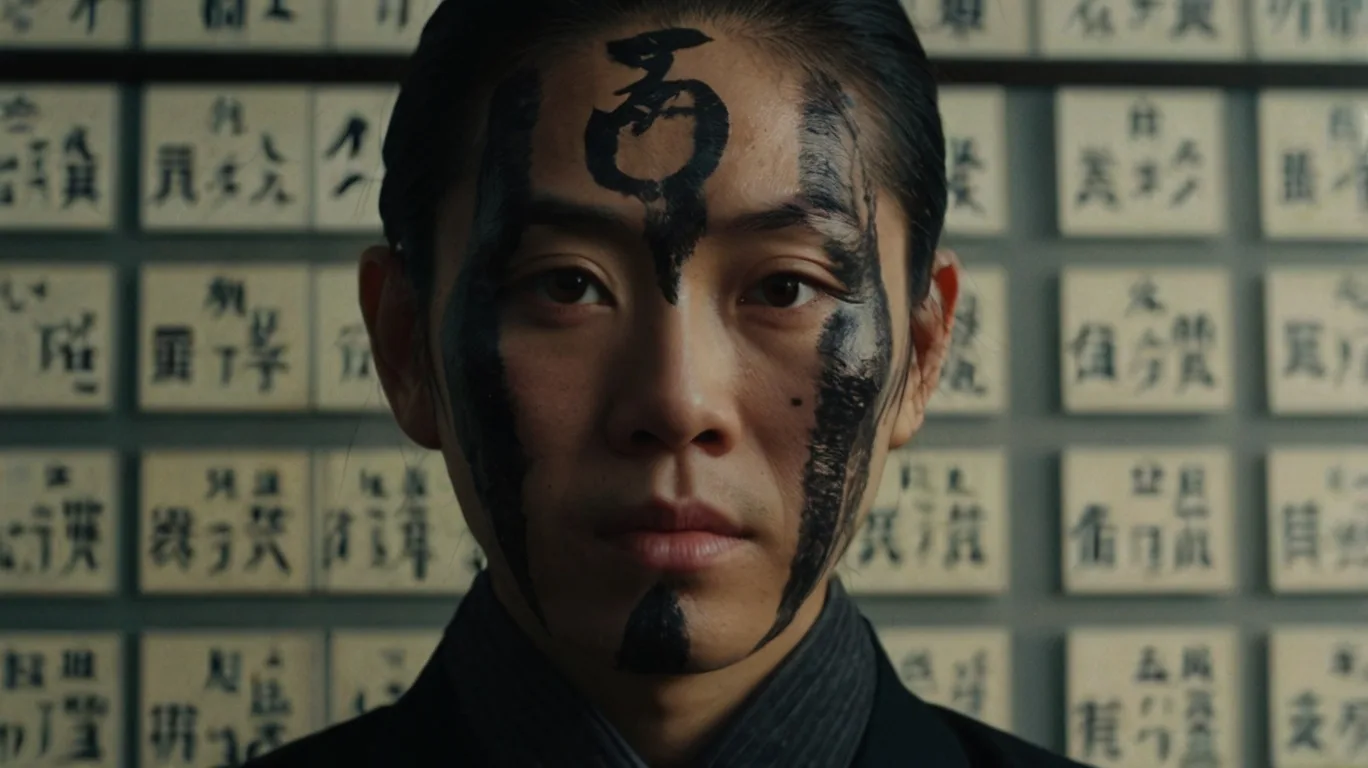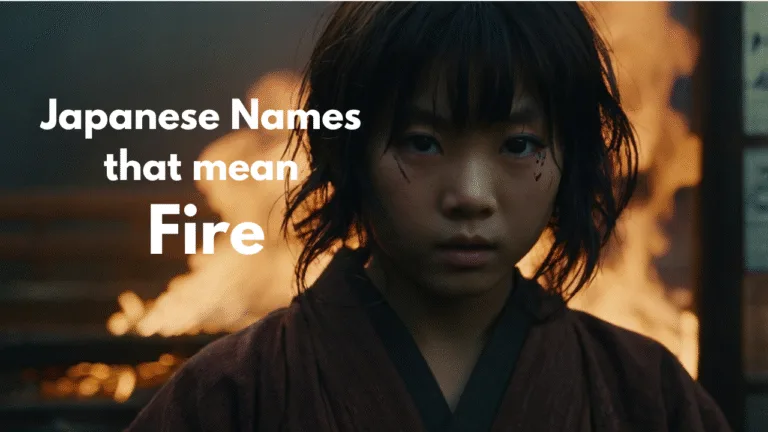Japanese Names That Mean Death

When I first started exploring Japanese names, I was fascinated by how they hold so much meaning. Every character in a name can carry deep symbolism—some names represent nature, others represent virtues, and some even have associations with death. It might sound a bit strange, but there are names in Japanese culture that either directly or indirectly relate to death. And while the idea of naming someone after death might seem eerie, in Japan, it often carries profound philosophical meaning.
In this article, I’ll take you through some of the Japanese names that mean death, their cultural significance, and how these names have evolved in modern-day Japan.
Examples of Japanese Names That Mean Death
One of the first things I learned is that Japanese names that mean death don’t always directly translate to “death” in the way we might expect. Instead, these names often evoke concepts like endings, finality, or destruction, which are tied to Japan’s spiritual views on the impermanence of life.
Here are a few examples:
- Shiho (死保): The first kanji, “死,” means “death,” while the second, “保,” means “to protect.” In a sense, the name could be interpreted as “protection from death” or “guarding death,” which carries a powerful and somewhat eerie connotation.
- Metsu (滅): This name means “destruction” or “extinction,” evoking images of an end to something—often associated with great finality.
- Makoto (誠): While not directly meaning “death,” this name can be linked to truth, and in Japanese culture, the truth of life is often viewed as its inevitable end.
- Shin (死人): This name is quite direct. The kanji “死” means “death,” and “人” means “person.” It translates to “dead person” and carries a heavy connotation of mortality. It’s not used in modern Japan, but I can imagine it being used in literature to convey a profound philosophical insight.
- Raku (楽): While “楽” traditionally means “pleasure” or “comfort,” in specific historical contexts, it can be linked to the peace one experiences after death. It’s a peaceful, restful kind of end that emphasizes harmony after struggle. Some might choose it for its connection to tranquility after life’s challenges.
- Kuro (黒): While it means “black,” Kuro is often associated with darkness, which can symbolically relate to death in many cultures. The color black has long been linked to mourning and the end of life, making this name an indirect reference to death. Though not directly meaning “death,” it has a connection to the finality of life.
- Masa (真佐): The first kanji, “真,” can mean “truth,” and “佐” can mean “help.” In the context of death, “truth” can be seen as the inevitable truth of life’s ending, and “help” can be interpreted as guidance through the process of life and death. This name is more abstract, but still carries a poignant undertone.
What I found intriguing about these names is how they represent death as an inevitable part of the natural order. In Japan, life and death are seen as interconnected, and many of these names reflect that philosophy.
Japanese Names that Mean Death
Japanese Names That Mean Death for Males
For male names, the connection to death can come in many forms. While I was researching, I came across several male names that are either directly associated with death or carry undertones of finality:
- Shisha (死者): This name means “deceased person.” It’s not commonly used for newborns, but it carries a heavy and poignant meaning, representing those who have passed away.
- Metsuya (滅也): A name that combines “滅” (destruction) with the phonetic “也,” making it a more approachable name while still carrying the connotation of an end.
- Touka (滝火): The kanji “滝” means “waterfall,” and “火” means “fire.” While it doesn’t mean death outright, the image of fire and water, both powerful forces of destruction, can be tied to the natural forces that bring about an end.
- Tatsuya (達也): This name can be associated with “達” meaning “achievement” and “也” indicating a finality. When placed together, they can suggest the achievement of death or the finality that comes with life’s conclusion.
- Seiji (清治): While not directly referring to death, this name means “cleanse” and “rule.” The idea of cleansing is sometimes linked to the concept of death as a purifying process. It can represent a final cleansing or spiritual renewal at the end of one’s life.
- Kage (影): The kanji for “shadow” in this name is often used in Japanese to evoke death or the afterlife. Shadows can represent something that lingers after a person’s death, symbolizing their lasting presence or memory.
- Shisha (死者) – Meaning “deceased person.”
- Metsuya (滅也) – Meaning “destruction” or “extinction.”
- Shin (死人) – Meaning “dead person.”
- Kuro (黒) – Meaning “black,” associated with darkness and mourning, indirectly linked to death.
- Tatsuya (達也) – Can symbolize “achievement of death” or “finality.”
- Seiji (清治) – “Cleansing and ruling,” sometimes seen as a purifying process related to death.
- Kage (影) – Meaning “shadow,” often associated with death and the afterlife.
- Metsu (滅) – Directly means “destruction” or “death.”
- Raku (楽) – While meaning “comfort” or “pleasure,” it can symbolize the peace or rest after death.
- Raikou (雷光) – Meaning “thunderlight,” sometimes symbolizing the suddenness of death.
These names reflect a deep respect for the transient nature of life and death, emphasizing that nothing lasts forever.
Japanese Names That Mean Death for Females
For female names, the meanings of death tend to be more subtle, often tied to concepts of endings or transitions:
- Shizuka (静香): While not directly linked to death, the name “Shizuka,” which means “quiet” or “calm,” can carry a quiet connotation of death—peaceful, restful, and still. It’s as if the name symbolizes a serene end.
- Metsuki (滅樹): Combining the kanji for “destruction” and “tree,” this name evokes the image of an end to life, as trees are often used in Japan as symbols of life and vitality.
- Akira (明): Meaning “bright” or “clear,” “Akira” may not directly mean death, but it’s often associated with enlightenment. In some contexts, enlightenment can be linked to understanding the finality of life, giving it an indirect connection to death.
- Kuroko (黒子): Meaning “black child,” this name carries the connotation of darkness and mystery. The color black is traditionally associated with death in many cultures, including Japan. It may symbolize the child of darkness, carrying a haunting, spiritual meaning.
- Yami (闇): The kanji “闇” means “darkness,” which can be associated with death and the unknown. It’s a name that evokes the idea of the unknown realm, where death resides, making it a powerful and evocative name.
- Tama (玉): While “玉” means “jade” or “gem,” in specific contexts, it also has connotations of preciousness that only become clear once someone has passed away. The idea is that death brings an appreciation of life’s fleeting beauty, much like a precious gem.
- Rin (凛): Though the kanji “凛” means “cold” or “stern,” it can also be linked to a sense of stillness, quiet, and finality, which gives it a subtle connection to death. It’s a name that carries the weight of calmness and the idea of life’s end.
- Shizuka (静香) – Meaning “quiet” or “calm,” symbolizing the peaceful end of life.
- Kuroko (黒子) – Meaning “black child,” associated with the concept of darkness, linked to death.
- Yami (闇) – Meaning “darkness,” often linked to death or the afterlife.
- Tama (玉) – While it usually means “gem,” it can symbolize preciousness that only becomes apparent after death.
- Rin (凛) – Meaning “cold” or “stern,” representing stillness and the finality of death.
- Metsuki (滅樹) – Combining “destruction” with “tree,” symbolizing the end of life or death of nature.
- Makoto (誠) – While meaning “truth,” in some contexts, it’s associated with the ultimate truth of life’s end.
- Akira (明) – Meaning “bright” or “clear,” sometimes symbolizing enlightenment, which can be associated with understanding the finality of life.
- Kiri (霧) – Meaning “fog” or “mist,” often symbolizing the uncertainty of life and death.
- Yukari (縁) – Meaning “fate” or “connection,” sometimes linked to the fateful end of life.
I found it interesting how these names, while not explicitly meaning death, are still imbued with the deep philosophical understanding of life’s fleeting nature.
The Symbolism of Death in Japanese Names
What I learned about death in Japanese names is that it isn’t seen as something to fear, but rather something to understand as part of life’s cycle. In Japan, death is often treated with respect and viewed through a lens of impermanence. The concept of wabi-sabi, the beauty in imperfection and transience, usually comes into play when naming children. Death-related names may be chosen to remind the individual of the fleeting nature of life and the importance of living fully, knowing that all things come to an end.
These names aren’t morbid or sinister; they’re about embracing the inevitable and finding peace in it.
Are These Names Used in Modern Japan?
Are names with such heavy meanings still used in modern Japan? After some research, I found that while names directly meaning “death” are rare today, there are still some families who use names with subtle ties to death or finality. However, most of these names are more commonly found in historical or fictional contexts, like in literature, manga, or anime.
Modern parents in Japan tend to lean toward names that reflect positive traits, nature, or virtues like “strength” or “harmony.” But the old tradition of incorporating death or impermanence into a name is still part of the cultural fabric, even if it’s less common today.
Choosing a Name with Depth
If you’re thinking about giving a name with a profound meaning—whether related to death or something else—there’s a lot to consider. For me, it’s all about the symbolism behind the name. When choosing a name tied to death, it’s essential to reflect on what the name represents. Is it about remembering the impermanence of life? Is it a reminder of the cycle of life and death? For parents considering such names, it’s essential to understand the cultural context and what message they want to send through their child’s name.
Conclusion
Japanese names that mean death hold rich cultural symbolism. They remind us that death is an inevitable part of life, and by embracing this fact, we can appreciate the beauty in the fleeting moments we have. While these names aren’t commonly used today, their philosophical depth continues to influence naming traditions in Japan.
FAQs
Can these names be used for children today?
While it's rare, some parents still choose names with ties to death, especially if they resonate with the family's values or philosophy.
What does it mean to give a death-related name in Japan?
It signifies a deep understanding of life's temporary nature and encourages the individual to live meaningfully.

